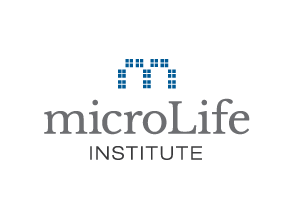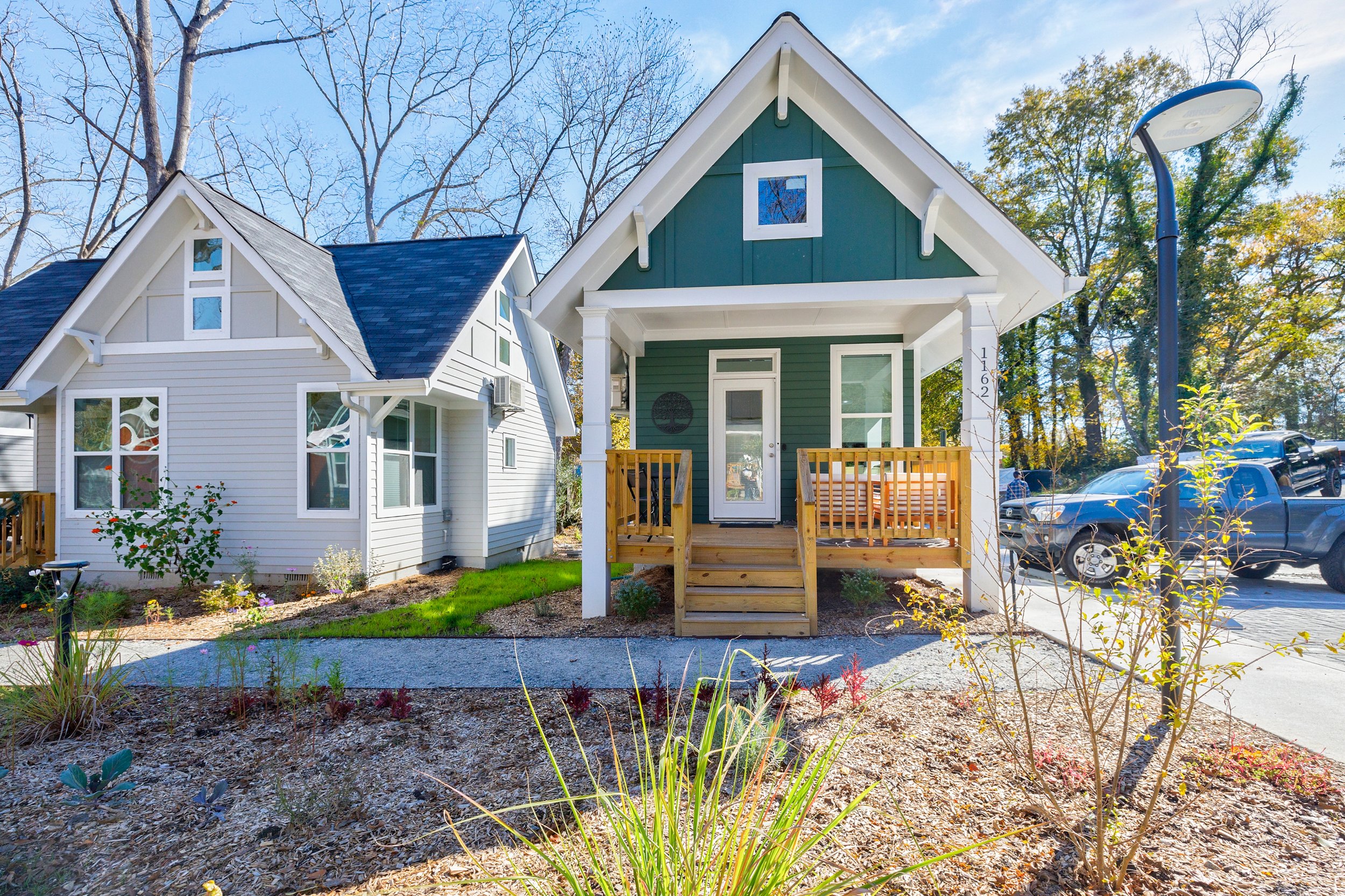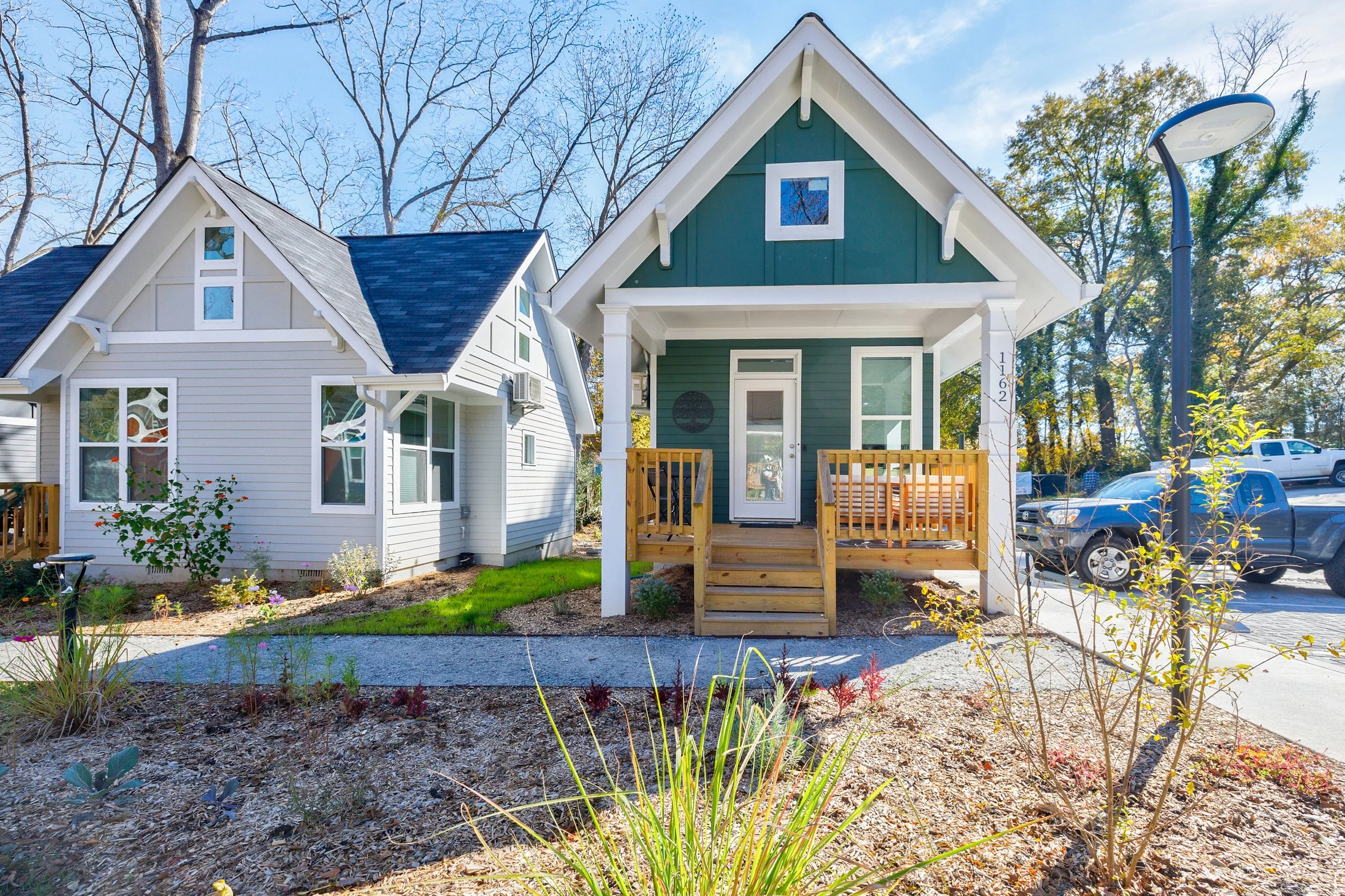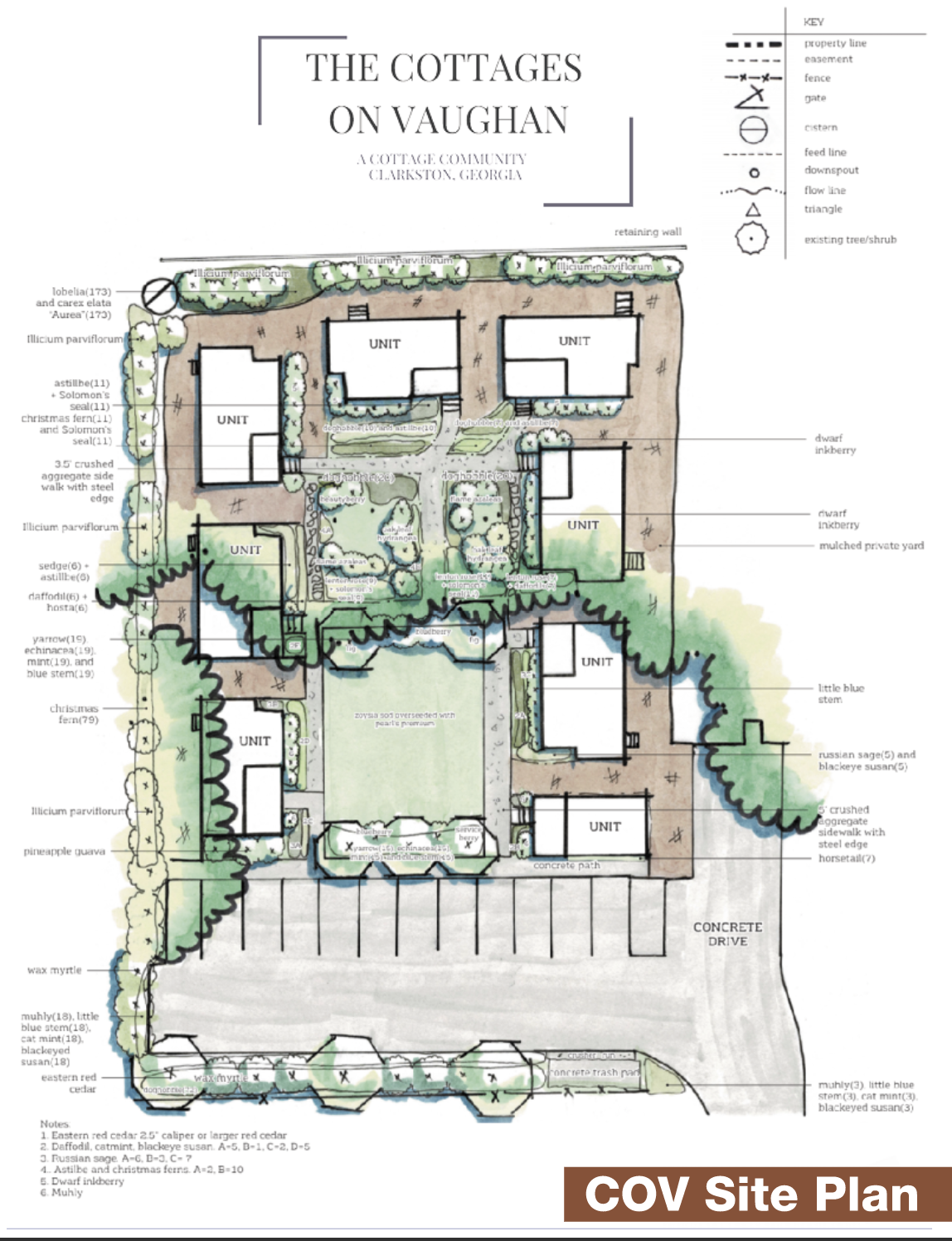
NOTE: ALL HOMES HAVE BEEN SOLD AND ARE OWNER-OCCUPIED
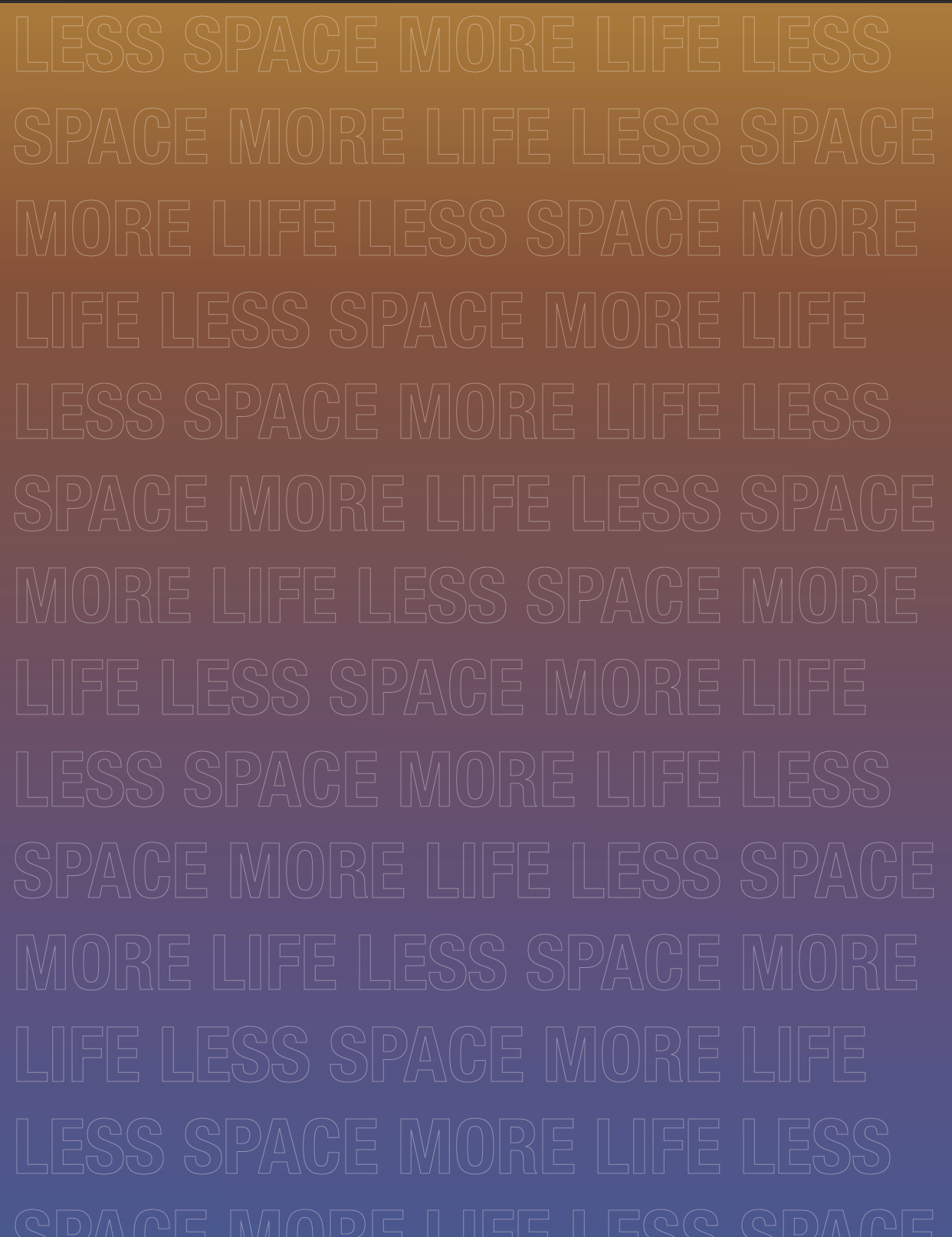
The Cottages on Vaughan is the first project of its kind in Clarkston, the most diverse square mile in America.
The new pocket neighborhood, situated on a half-acre lot a block away from downtown Clarkston, includes eight micro-cottage homes, a common green space for gathering, and climate-conscious development features such as solar panels and edible, regenerative landscaping. You can now purchase our 250 square foot floor plan as well as our 492 cottage home plan.
Less Space, More Life
The MicroLife Institute continuously commits itself to changing the American housing landscape in an effort to make homeownership more inclusive, affordable, and sustainable. Driven by a mission to promote a better quality of life by utilizing micro-living principles through education, advocacy, research, and demonstrations, the MicroLife Institute believes that our communities can grow stronger, happier, and healthier. By downsizing, living small, and intentionally redesigning our communities to support walkability, we can manifest a much-needed paradigm shift in both our national and local zoning policies.
Interactive educational programming allows the MicroLife Institute to inform community members and municipalities alike of the positive impacts micro-living can have on their communities, their own lives, and the environment. With successful pilot projects like the Cottages on Vaughan, MicroLife is demonstrating to municipalities throughout Georgia and the nation that micro-structures are a feasible and desirable form of housing that can be replicated in any community. Through outreach events such as the Tiny House Festival and Micro Home Tours, MicroLife engages members of the public to show them first-hand what it looks and feels like to live in a micro-environment. These outreach events empower the public by giving them the tools and resources needed to advocate to change local zoning laws to create more diversity of housing types that allow for micro houses, "missing middle" housing, and generally more accessible housing.
We believe there is room for homes that come in all shapes and sizes, that meet the needs of all kinds of people in a way that creates complete neighborhoods, slows climate change, brings our communities together, allows people to age in place with dignity, and adds critical missing middle housing stock to the market.
How MicroLife came across this property starts at the beginning of our education and programming through Tiny House Festivals. In 2016 we started our tiny house festivals to educate and advocate and excite municipalities, governments, and locals around new innovative progressive housing types and policies. It was one of those festivals that then-mayor Ted Terry of Clarkston attended and was immediately intrigued by how this new idea could add housing opportunities to the city of Clarkston GA. After that visit, he reached out to us at the MicroLife Institute and we promptly discussed and reviewed Clarkston’s Cottage court ordinance. Understanding what needed to be changed, MicroLife quickly suggested edits to the policy to create incentives for developers as well as measures to allow for naturally affordable attainable cottage court products. After the rewrite, the city of Clarkston voted to pass the newly updated ordinance. Once passed, the mayor asked if we’d be interested in starting a pilot project in the city of Clarkston. Our Director of Policy and Development found land within walking distance to downtown and we started the development process. And that ladies and gentlemen, is how we started the Cottages on Vaughan in 2018.
Layers of Separation: to give homes a balance of public and private space
Nested Houses: We designed the Cottages on Vaughan to with open and closed sides so that neighboring homes ‘nest’ together — the open side has large windows facing its side yard, while the closed side has high windows and skylights to bring in ample light while preserving privacy. The result is that neighbors do not peer into one another’s living space
Parking: We designed the parking at the Cottages on Vaughan to encourage interaction with the neighborhood by locating parking on the exterior of the site, meaning guests must walk through the shared common area upon arrival.
Common Area: We have three common areas at the Cottages on Vaughan: The firepit, modular picnic tables, and a pergola. Our houses are all designed to face these common areas and encourage our neighborhood to interact with them.
Room-Sized Front Porches: facing common areas to encourage outdoor access and community interaction
Regenerative Landscaping & Productive Urban Landscapes: Everywhere you look, you will see fruits and vegetables that feed the community and replenish our soil, and an abundance of pollinator habitats to support biodiversity.
Sustainable Design: The Cottages on Vaughan are built to last - and that means they are built with a clean energy future in mind, complete with Mitsubishi heating and cooling systems, solar panels, and pervious walkways and parking spaces.
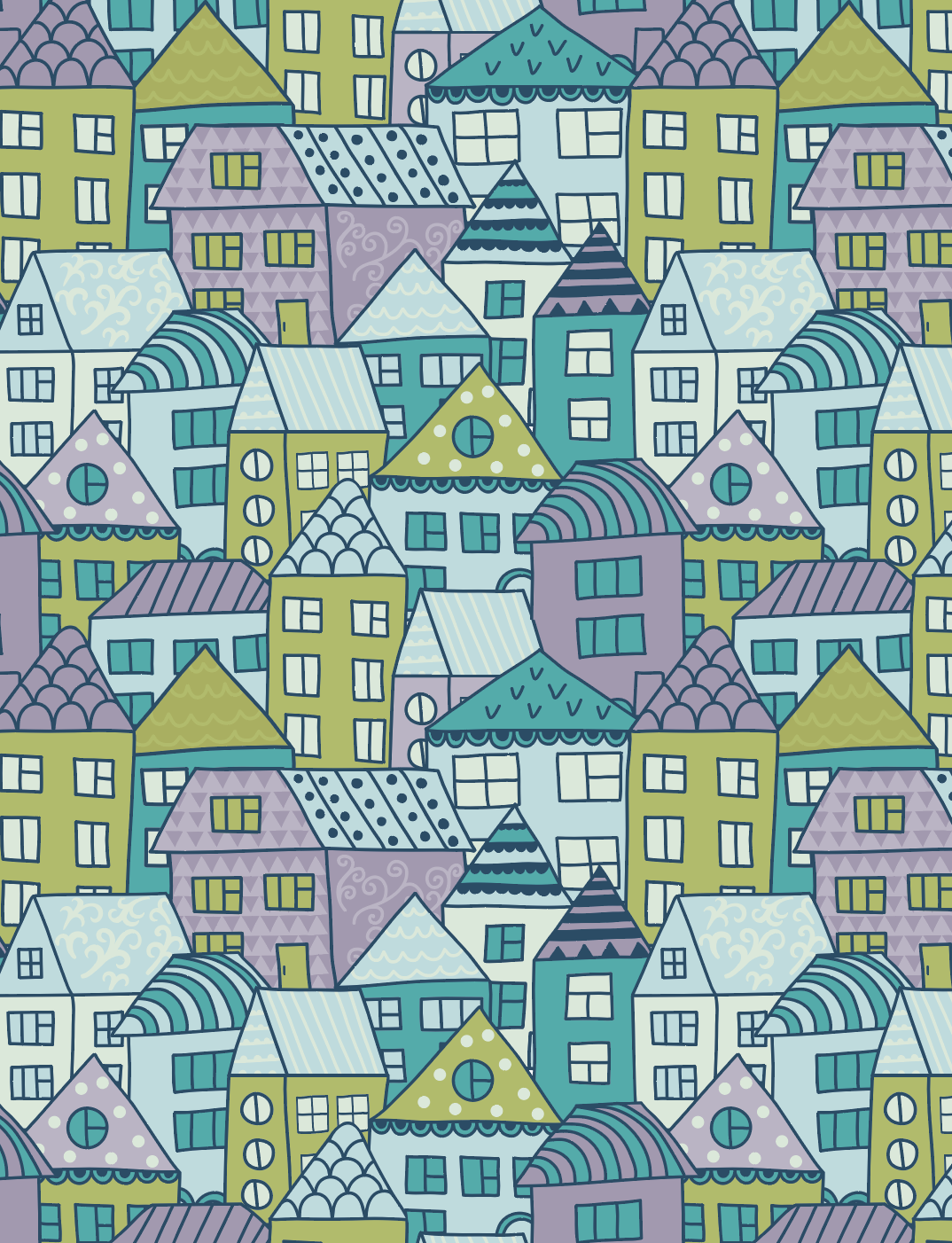
COV Community
Rich Pasenow
What’s your favorite thing about living in the Cottages so far?
“Definitely the sense of community. I have lived here for just over a week and I have spoken to at least one of my neighbors every day. I also love the general community interest and support.”
JOIN US FOR AN UPCOMING TOUR TO EXPERIENCE THIS INNOVATIVE MICRO-COTTAGE COMMUNITY IN PERSON
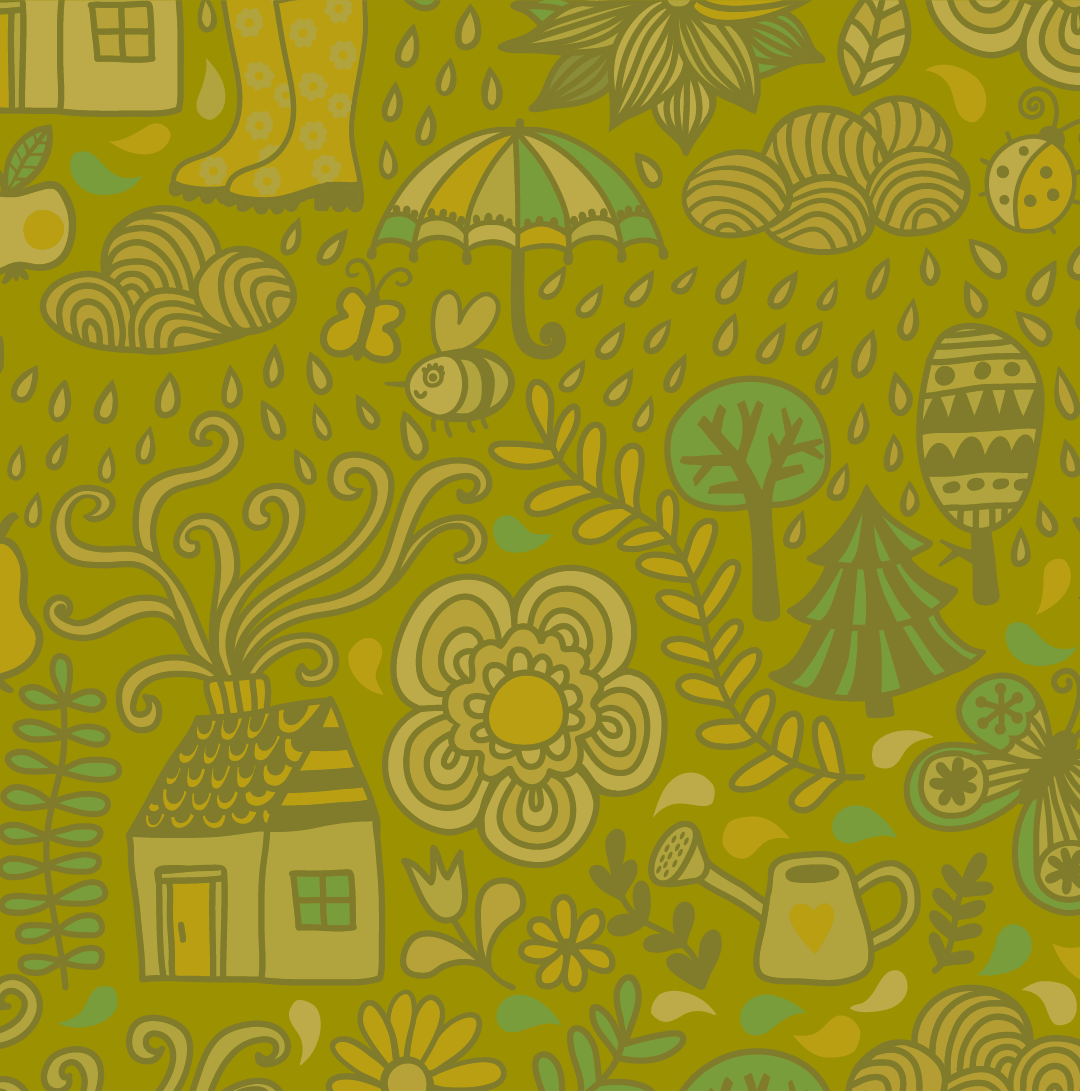
GET INVOLVED 👇
FAQ’S ABOUT THE
COTTAGES ON VAUGHAN
-
In general, smaller spaces are more expensive than their larger counterparts per square foot since there is not much cheap open space like living areas, bedrooms, garages etc. The expensive parts like the kitchen and bathroom are a large part of the cost and therefore the average price per square foot on a small or tiny home is significantly higher than a large home with lots of empty inexpensive space.
Further, the development costs for a small home are very similar to the costs of a large home, though there is less square footage to spread the cost across. For example, if the development cost for a house is $50k and the house is 2000 SF, the cost of development per square foot is $25/SF. On the other hand, if the development is $50k and the houses only 500 SF, the cost of development per square foot is $100/SF. The overall cost of the house is therefore $75/SF more just based on the development expenses.
The goal is to help municipalities revise all of their rules to reduce this, but at this time, there is much room for improvement (ie. water tap fees, sewer tap fees, impact fees, permit fees, how stormwater is treated, sewer and water line sizes for smaller homes are often required to be the same size as large homes, even though the usage will be significantly less.)
-
* Houses are under 500 SF
* It’s one of the few cottage developments in the metro area
* City initiated the development and supported it throughout
* Has helped spur conversation about zoning laws and other rules which impact development
* Organic interest list of over 1000 people
* Intentional community
* Cost-effectively green/sustainable based on size
* Not government-subsidized
* Naturally affordable
* Demonstrates building community through community design
-
Many cities/counties zoning codes have fatal flaws that prohibit pocket neighborhoods like: minimum lot sizes, requiring that all lots must front on a street, huge setback requirements, and minimum parking requirements. These zoning codes have created barriers for developers interested in piloting their own micro-living community.
If you are interested in working with MicroLife to develop a pocket neighborhood in your community, please fill out the following form: https://forms.gle/Cr8ibZofcpQL3S258
If you would like to learn more about the process of developing a pocket neighborhood, please check out our upcoming Developing Pocket Neighborhoods Virtual Course, Sept 30-Oct 1, 2021, 1pm-3pm ET both days. Info and tickets can be found here: https://www.eventbrite.com/e/developing-pocket-neighborhoods-virtual-course-tickets-168120096735
